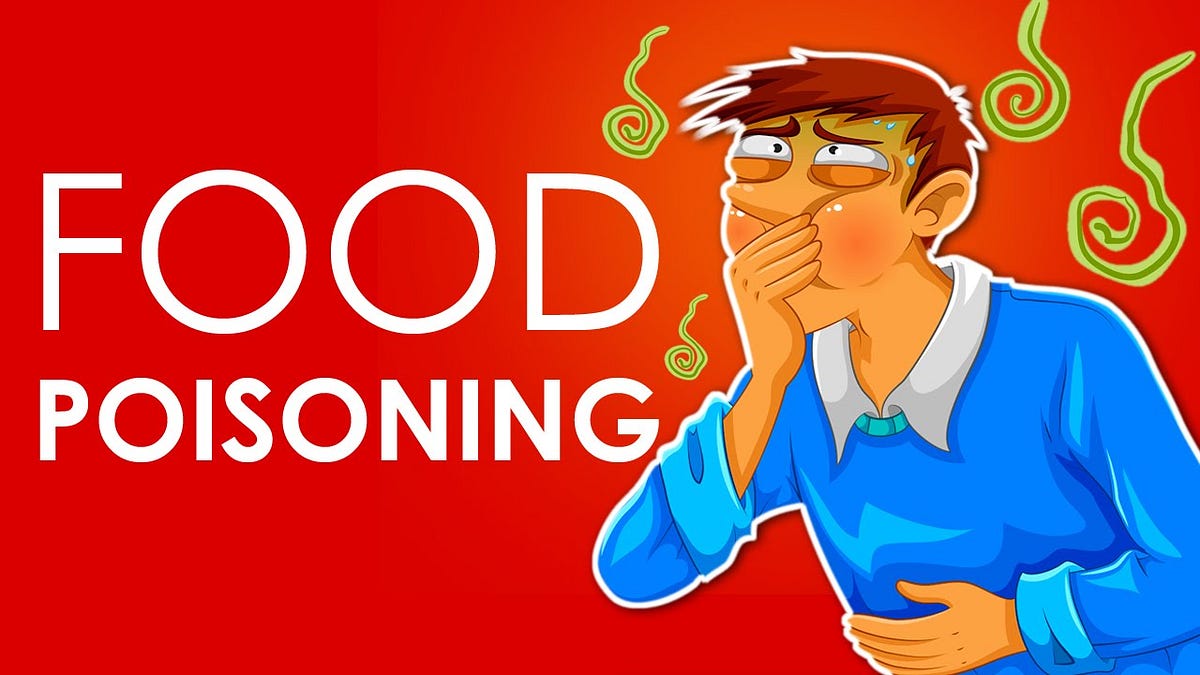Introduction to Food Poisoning
Food poisoning is a common illness caused by consuming contaminated food or water. It can lead to a range of symptoms, from mild discomfort to severe illness. Understanding the symptoms, duration, and treatment of food poisoning is crucial for effectively managing and recovering from this condition.
Symptoms of Food Poisoning
Overview
The symptoms of food poisoning can vary depending on the type of contaminant and individual factors such as age and overall health. However, common symptoms may
include
- Nausea
- Vomiting
- Diarrhea
- Abdominal pain or cramps
- Fever
- Fatigue
- Muscle aches
Duration of Symptoms
The duration of food poisoning symptoms can vary widely depending on factors such as the type and amount of contaminant ingested, individual immune response, and treatment received. In general, symptoms may last anywhere from a few hours to several days.
Types of Food Poisoning
Bacterial
Bacterial food poisoning is caused by the ingestion of food contaminated with harmful bacteria such as Salmonella, E. coli, or Campylobacter. Symptoms typically develop within a few hours to a few days after consuming contaminated food and may last for several days.
Viral
Viral food poisoning, also known as viral gastroenteritis or the stomach flu, is caused by viruses such as norovirus or rotavirus. Symptoms usually appear within one to three days after exposure and may persist for up to a week or more.
Parasitic
Parasitic food poisoning is caused by parasites such as Giardia or Cryptosporidium, which can contaminate food or water sources. Symptoms may take longer to develop, often appearing one to two weeks after exposure, and can last for several weeks or months without treatment.
Treatment for Food Poisoning
Hydration
Staying hydrated is essential for managing food poisoning symptoms, especially diarrhea and vomiting, which can lead to fluid loss and dehydration. Drink plenty of clear fluids such as water, electrolyte solutions, or herbal teas to replenish lost fluids and electrolytes.
Rest
Rest is vital for allowing the body to recover from food poisoning. Avoid strenuous activities and get plenty of sleep to help your body heal and regain strength.
Medications
Over-the-counter medications such as anti-diarrheal drugs (e.g., loperamide) and anti-nausea medications (e.g., dimenhydrinate) may help alleviate symptoms of food poisoning. However, it’s essential to consult with a healthcare professional before taking any medication, especially if you have underlying health conditions or are taking other medications.
Dietary Modifications
During the acute phase of food poisoning, it’s essential to follow a bland diet that is gentle on the stomach and easy to digest. Stick to plain, easily digestible foods such as rice, bananas, toast, and boiled potatoes until symptoms improve. Avoid spicy, fatty, or high-fiber foods that may aggravate gastrointestinal symptoms.
FAQs About Food Poisoning Duration
How long does it take to recover from food poisoning?
The duration of recovery from food poisoning varies depending on factors such as the type and severity of contamination, individual immune response, and treatment received. In general, mild cases of food poisoning may resolve within a few days, while more severe cases may take up to a week or longer to recover fully.
When should I seek medical attention for food poisoning?
You should seek medical attention if you experience severe or persistent symptoms of food poisoning, such as high fever, bloody diarrhea, dehydration, or signs of infection spreading beyond the gastrointestinal tract. Pregnant individuals, young children, older adults, and individuals with weakened immune systems should also seek prompt medical care if they develop food poisoning symptoms.
Can food poisoning lead to long-term complications?
In most cases, food poisoning resolves without long-term complications. However, certain types of food poisoning, such as those caused by certain strains of bacteria or parasites, may lead to chronic health issues if left untreated. It’s essential to seek medical attention if you experience severe or persistent symptoms of food poisoning to prevent potential complications.
How can I prevent food poisoning?
To reduce the risk of food poisoning, practice proper food safety measures, such as washing hands and surfaces frequently, cooking foods to the appropriate temperature, storing foods properly, and avoiding cross-contamination between raw and cooked foods. Additionally, be cautious when consuming foods that are more susceptible to contamination, such as raw or undercooked meats, unpasteurized dairy products, and raw fruits and vegetables.
Can food poisoning be contagious?
Some types of food poisoning, such as viral gastroenteritis caused by norovirus or rotavirus, can be contagious and spread from person to person through direct contact or contaminated surfaces. Practicing good hygiene, such as washing hands frequently and disinfecting surfaces, can help prevent the spread of contagious foodborne illnesses.
Are there any dietary restrictions I should follow after recovering from food poisoning?
After recovering from food poisoning, gradually reintroduce foods into your diet as tolerated. Start with bland, easily digestible foods and gradually incorporate a variety of foods back into your meals. Avoid foods that may be difficult to digest or trigger gastrointestinal symptoms until your digestive system fully recovers.
Conclusion
Food poisoning can be a distressing and uncomfortable experience, but with proper management and treatment, most cases resolve within a few days to a week. Understanding the symptoms, duration, and treatment options for food poisoning is essential for effectively managing this condition and promoting a speedy recovery. By practicing good food safety measures and seeking prompt medical attention when necessary, you can reduce the risk of foodborne illness and protect your health and well-being.
- Profhilo Treatment Near Selhurst, Surrey - May 31, 2025
- THC Seltzers And How To Enjoy Them Responsibly - May 30, 2025
- Secondary Partners: Navigating Non-Primary Roles In Polyamory - May 29, 2025

